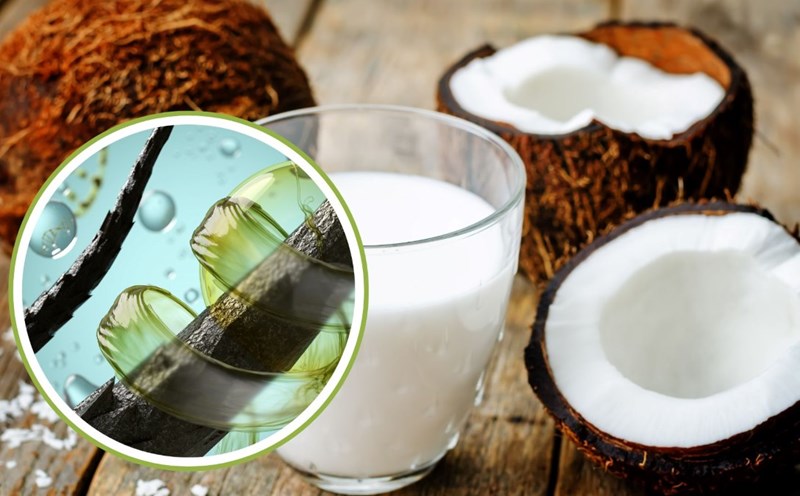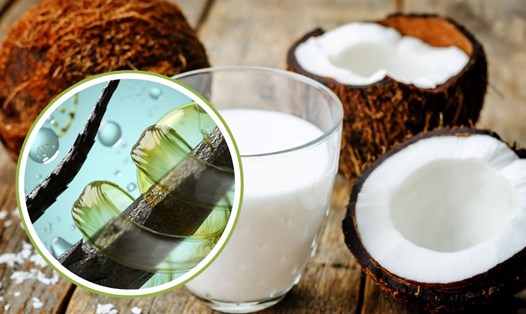Ingredients of coconut milk
According to Ms. Rashi Chahal, a clinical nutritionist at Fortis La Femme GK (New Delhi, India), coconut milk is extracted from the meat of old coconuts, containing a lot of calories and fat, especially saturated fat, accounting for about 80.90% of total fat. This is a concern because a diet rich in saturated fat can increase LDL cholesterol (bad cholesterol) levels and the risk of cardiovascular disease. However, coconut milk also contains medium-chain triglycerides (MCT) - a type of fat that is quickly metabolized, which can be used by the body for energy instead of stored as fat.
The impact of coconut milk on cholesterol
Expert Rashi Chahal said that current studies show that coconut milk can increase both LDL and HDL cholesterol (good cholesterol). Some small studies show that coconut milk consumers have higher HDL levels than those who consume soy milk, but have also recorded a slight increase in LDL cholesterol. Therefore, coconut milk is not completely harmful, but is also not completely safe for cardiovascular health.
How much coconut milk should you drink?
According to Dr. Rashi Chahal, coconut milk should be used in moderation. An occasional glass in dishes or drinks is often not a bad thing if the overall diet is balanced and low in other saturated fats. However, consuming coconut milk daily or completely replacing other dairy products can increase cholesterol over time. If you like it, you should choose low-fat or diluted coconut milk with water, preferably unsweetened and non-preserving.
Heart-friendly alternatives
For people with cholesterol problems, plant milks such as almond milk, oat milk or soy milk are the priority choice thanks to their low saturated fat content and ability to support cholesterol reduction thanks to their fiber and plant sterols.
Clinical nutritionist Rashi Chahal said that coconut milk is not completely harmful to cholesterol, but its use needs to be considered and adjusted appropriately in the overall diet to maintain the best cardiovascular health.
Note
The information in the article is for reference only, not a replacement for medical diagnosis or treatment. You should talk directly to your doctor for accurate advice that is suitable for your health condition.











